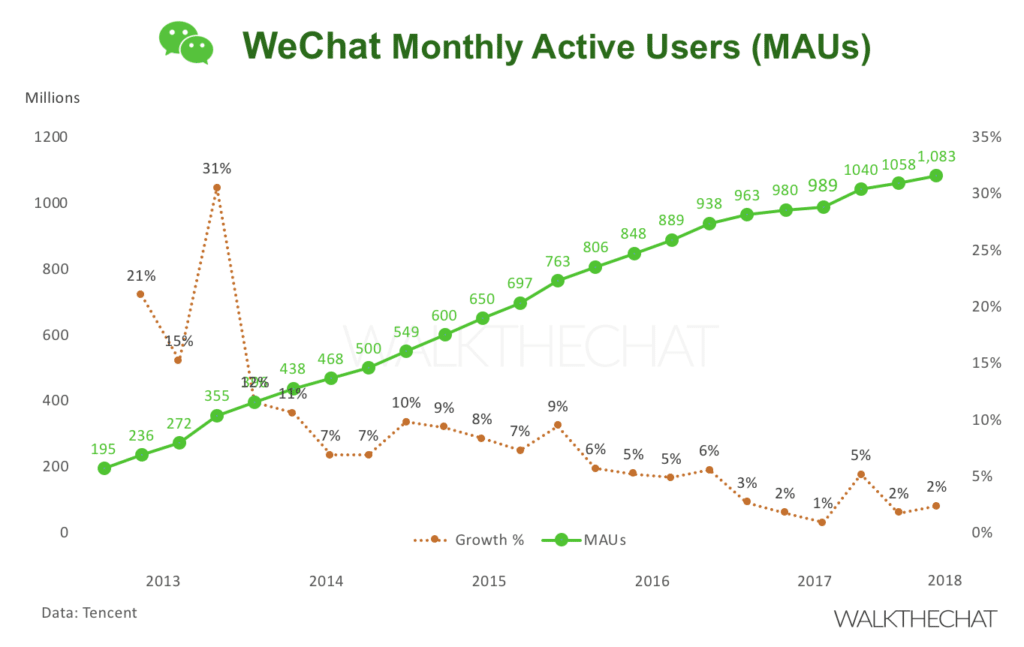Tencent released their Q3 2018 earnings, and they show a transformation into a new company: away from gaming, and toward online payments.
But why is this change happening?
Tencent Quarterly results
Tencent earnings reflected a healthy growth of revenue (with a 24% increase YOY).
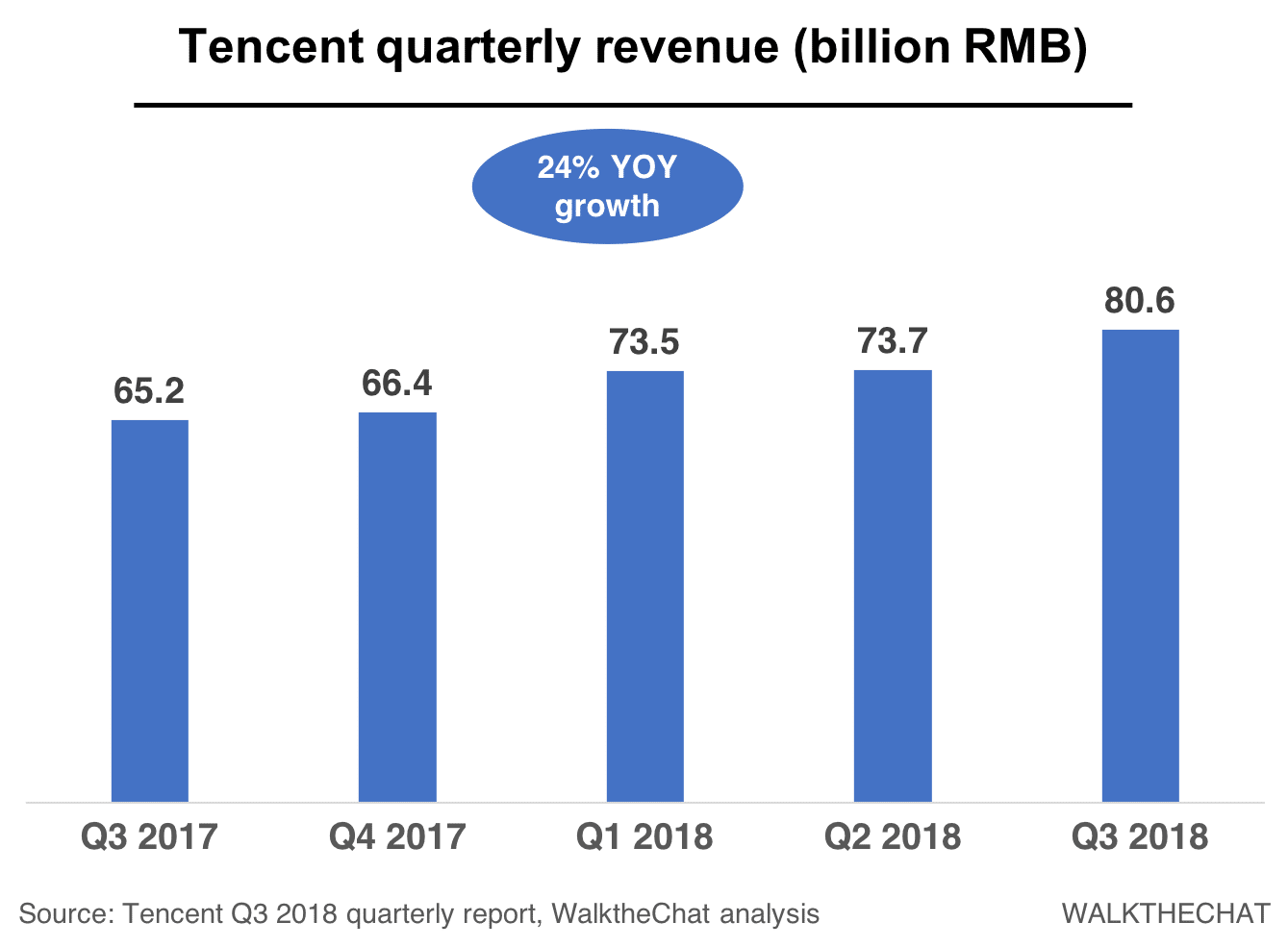
Profits grew at a slightly slower pace of 22% YOY.
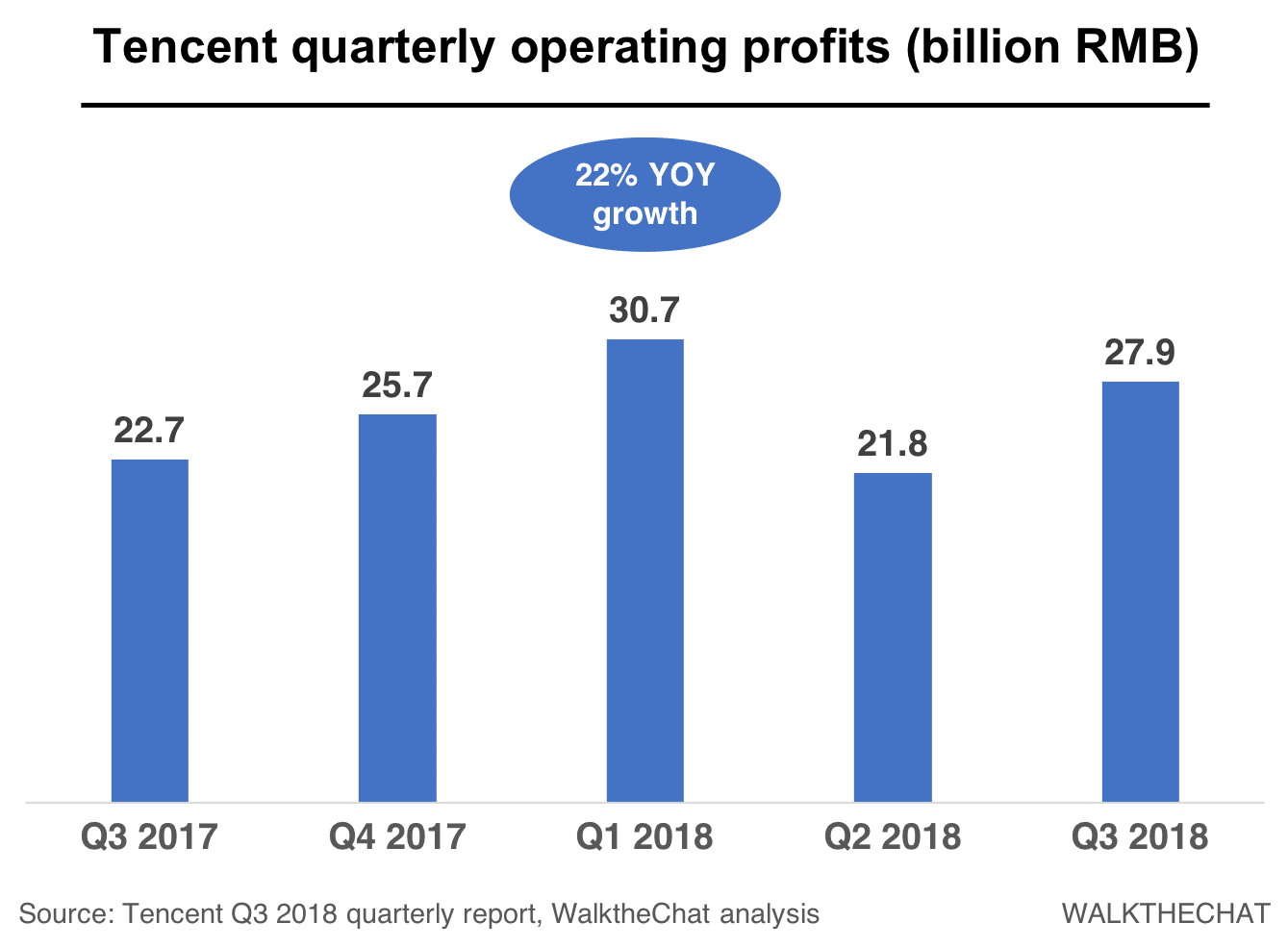
Although this performance appears as reasonably good, it is a new low in terms of growth for Tencent. Revenues growth has been steadily decreasing for the previous 5 quarters.
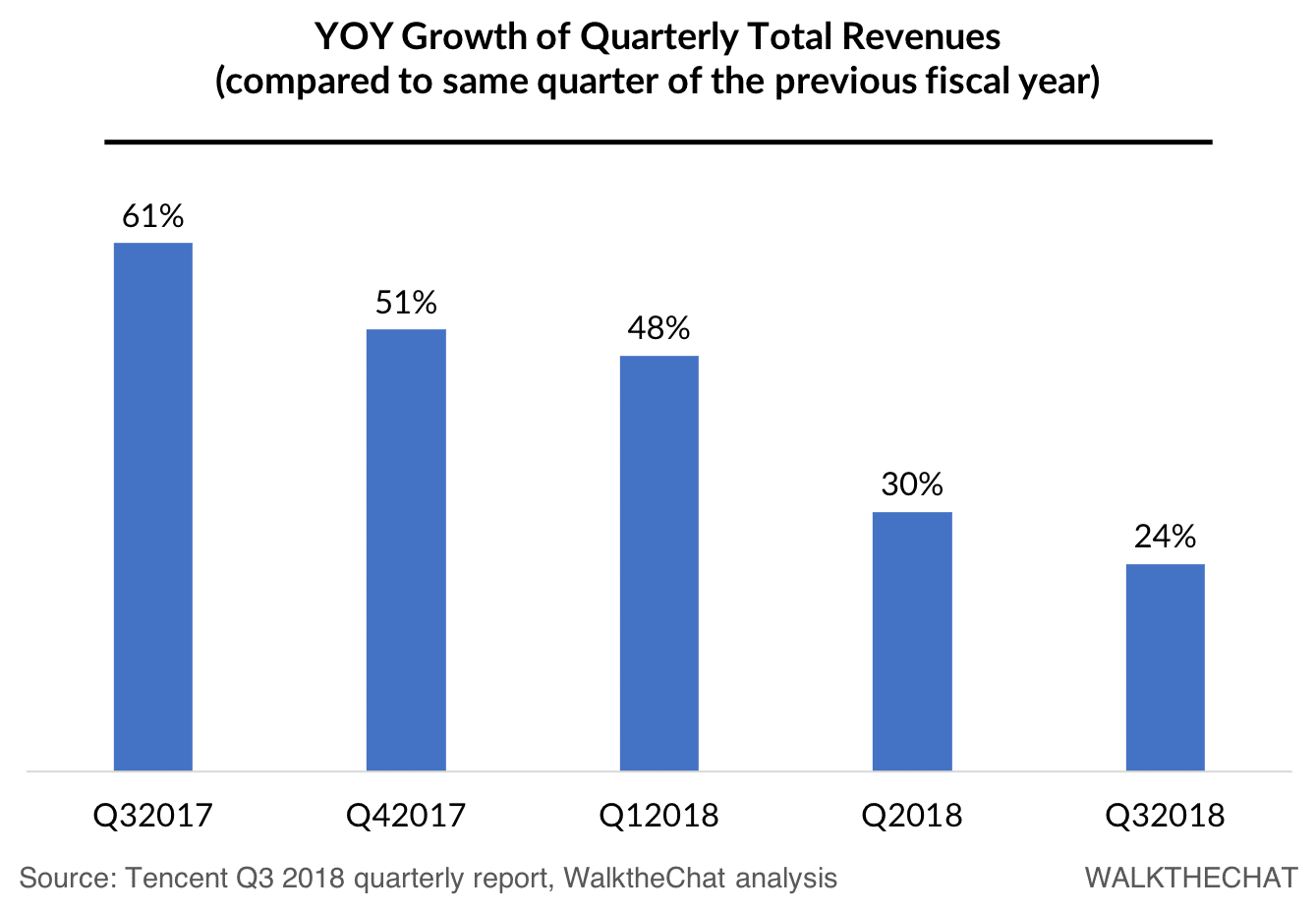
This decrease in growth can be explained by one essential trend: the decrease of gaming revenues of Tencent.
Tencent struggle with gaming revenues
Over the last year, gaming revenues decreased from 41% to 32% of Tencent total revenues. This is due to the slow growth of gaming revenues, while other sectors such as Payment & Cloud and Social Advertising (mostly driven by WeChat moments advertising) saw faster growth.
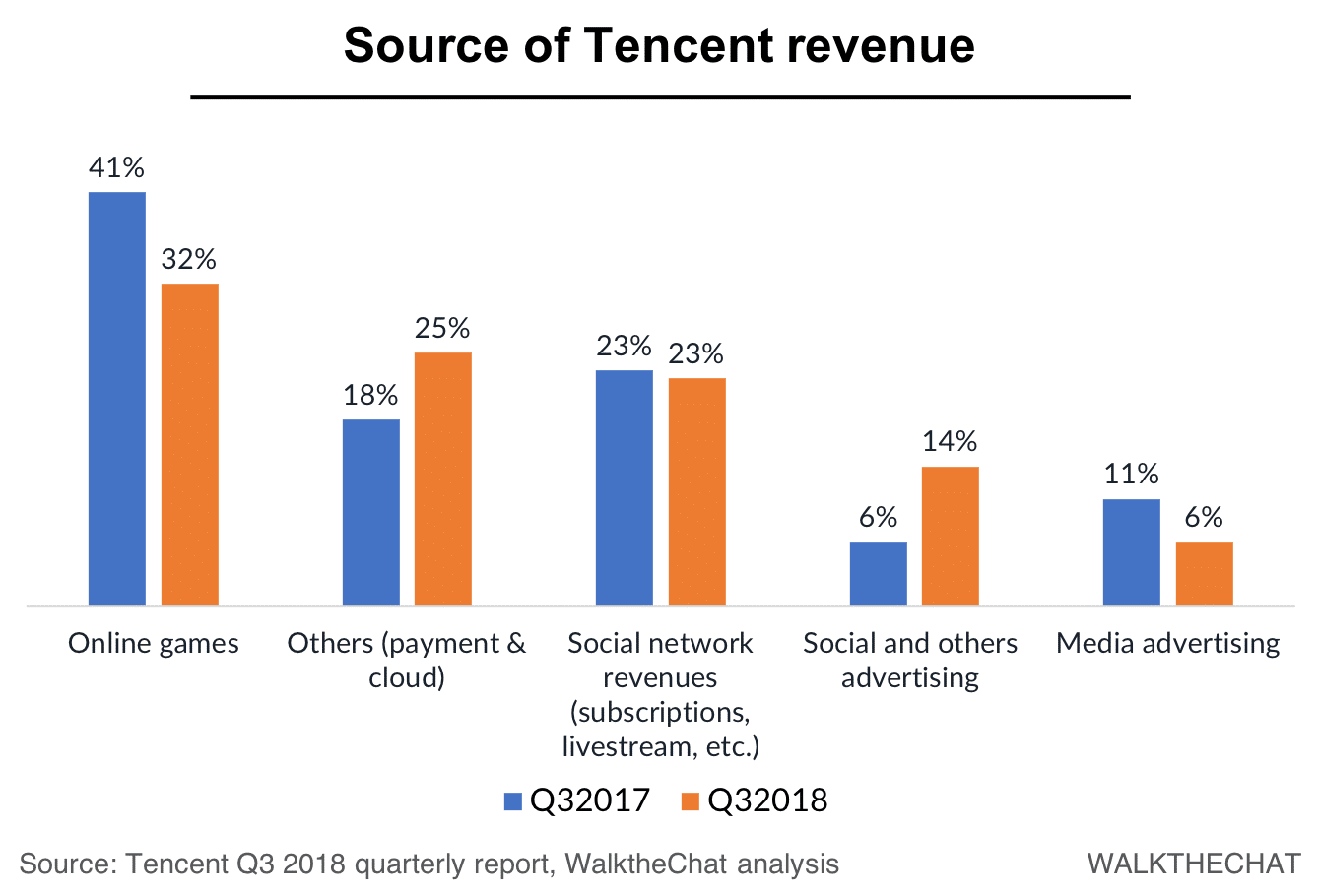
Tencent’s gaming revenue is largely impacted by the temporary suspension of new game approvals in China. The regulation forces to delay monetization of Honour of Kings and PUBG Mobile, two of Tencent’s most popular mobile games. Tencent still has 15 games with monetisation approval in the pipeline. Yet it’s uncertain if these games will be approved in time. The PUBG’s DAU on Steam has dropped quite significantly.
PC client games went down by 15% YoY, and down by 4% quarterly to RMB 12.4 billion. One of Tencent’s big release Monster Hunters World is forced to temporarily cease operation after the 6th day of its launch due to the regulation issue.

Gaming revenues of Tencent have met another roadblock: regulation in China has been evolving in order to limit the amount of time spent by young people on online games.
In order to adapt itself to these new guidelines, Tencent started verifying user identities starting on the 25th of September. Children aged between 13 and 18 are able to play for up to two hours per day, while those 12 and under are limited to just one.
The conservative gaming regulation is unlikely to change in the short-term. The company also has to battle with the short lifetime of games. Both bring uncertainty to Tencent’s future earnings.
This trend will force Tencent to transform from a gaming-centered company toward a payment-centred company. Profits are negatively impacted as the company is moving away from a gaming “cash cow”. The payment business, although profitable in the long run, currently requires more investment to fight-off Alipay.
QQ dying out… except among young users
QQ has seen strong signs of slow down: its Monthly Active Users decreased by 4.8% YOY. QQ is however not decreasing over across all user groups: Smart Device MAU’s grew by 6.9% YOY, and MAU’s below 21 years old grew by 16% YOY.
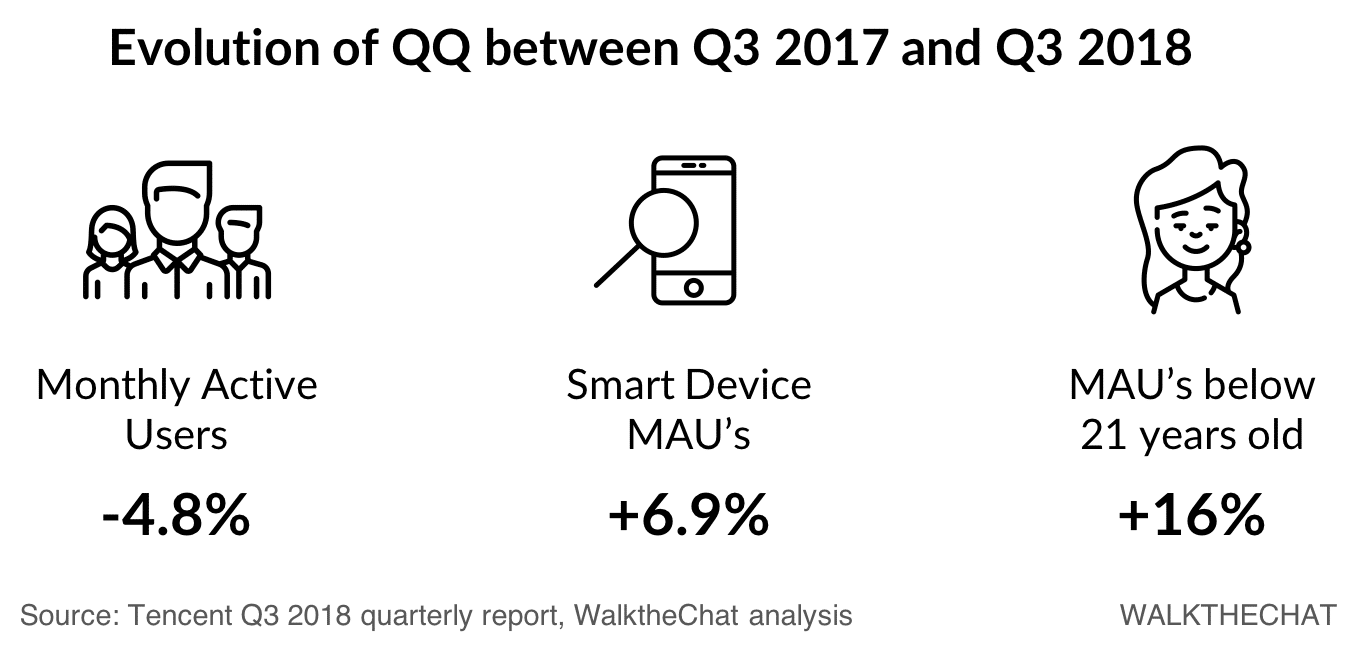
This confirms the positioning of QQ has an App focusing on a younger user groups, with a design which is more colorful and playful than WeChat.
QZone seems to be heading toward a more definitive decline: Smart Device MAU of QZone decreased by 3.8% YOY.
WeChat growth slows down & more engagement on Mini programs
WeChat’s Monthly Active User reaches 1082.5 million, a 2.3% quarterly increase.
Earlier this month, Pony Ma, Tencent CEO, announced in the World Internet Conference that the Daily Active User of Mini Program has reached 200 million. The number of Mini Program reach 1 million, covering over 200 industries. He also claimed the Mini Program has brought 1 million job opportunities.
Conclusion
Tencent remains on a strong growth path fueled by the growth in mobile payment and advertising business.
The story is, however, more complex than it seems: the challenges of Tencent in the gaming industry will drive profits and revenues growth on the short term until ads and financial services can further accelerate growth rates.


